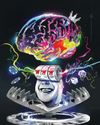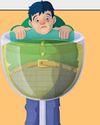
Not to be all gothic and theatrical, but the darkness is coming. Come the end of October, the clocks go back. Suddenly, the Sun will set before 5pm and we'll walk around in astonishment as though it hasn't happened every year previously.
The shock is real, however; we feel it in our very cells. That's because the shift in our external clocks has an impact on our bodies' internal clocks, the circadian rhythms that underpin more aspects of our health and behaviour than many of us realise.
Most of us feel the clocks change with little more than seasonal jet lag. We're groggy and grumpy. At the population level, however, we see something more serious. Every October and March, there's a slight change in the incidence of heart attacks and stroke.
"It's more in March that the real problems arise, but going back is also not ideal," says Dr John O'Neill, who studies circadian rhythms at the Medical Research Council Laboratory of Molecular Biology. "When the clocks go forward, there's maybe a 25-per-cent increase in the incidence of heart attacks."
This story is from the September 2024 edition of BBC Science Focus.
Start your 7-day Magzter GOLD free trial to access thousands of curated premium stories, and 9,000+ magazines and newspapers.
Already a subscriber ? Sign In
This story is from the September 2024 edition of BBC Science Focus.
Start your 7-day Magzter GOLD free trial to access thousands of curated premium stories, and 9,000+ magazines and newspapers.
Already a subscriber? Sign In

NOW YOU SEE ME, NOW YOU DON'T
Scientists around the world are working on ways to hide us from sight. But how close are we to developing tech that could make us invisible?

UNCORKED POTENTIAL
How much good can ditching drink for a month really do? Answer: a whole lot. In fact, science shows even short-term abstinence could unlock a cocktail of lasting benefits

Scientists discover when humans and dogs became friends
The relationship spans thousands of years, but experts might have pinpointed the first connection

Why it's so hard to kick a gambling addiction
We now know that gambling can be as addictive as drugs, but there are factors that can make it even harder to quit

How much could Ozempic change our world?
The weight-loss drug has made headlines and broken sales records, but what does it mean for our future?

WHY DOES DRINKING ALCOHOL MAKE IT SO MUCH HARDER TO LOSE WEIGHT?
While enjoying the occasional glass of wine or pint of beer may seem harmless, regular or excessive alcohol consumption can significantly hinder your weight-loss journey for a few reasons:

Why do so many New Year's resolutions fail?
Establishing positive new habits is hard at any time of year. But there are ways to stop your attempts ending in failure

'Extreme' solar radiation storm could hit Earth
Sun-like stars may have tantrums far more frequently than we thought

HOW CAN I BANISH THE JANUARY BLUES?
Dark mornings, long chilly evenings and short days; many people find January tough.

Neutrinos are getting in the way of dark matter detection
These troublesome particles are difficult to detect, but they're starting to show up in places where they're not wanted
